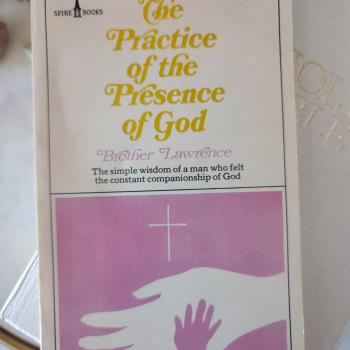Church attendance is down, and the decline started before the pandemic. Congregations are shrinking. There is an increasingly noticeable lack of young people in the pews. While more than 2/3 of Americans profess some kind of Christianity, this increasingly doesn’t translate into participation in Christian community. About half of U.S. Christians do not attend church services.
It’s not difficult to see why many are leaving church behind. Fairly or not, we are often associated with hate, hypocrisy and overall mean-spiritedness. We can come off less like Jesus Christ and more like King Rehoboam. We who are meant to embody the fruits of the Spirit – love, patience, kindness, generosity – too often project the opposite.
But this doesn’t mean we should accept the Church’s decline as inevitable. For those of us who look around and see a broken world in desperate need of redemption, coming together to practice the Way of Jesus opens up the road to the healing we seek. Consider this an appeal to those ‘non practicing’ Christians out there. Here are some reasons why church still matters.
A good church defies despair
Our society is suffering a crisis of companionship. More than 1/3 of adults – and 2/3 of young people – report dealing with “serious loneliness” since 2020. We can’t pin this on the pandemic and assume conditions will improve once it’s over. We’ve been trending toward disintegration long before COVID-19.
We are increasingly disconnected from one another, with opportunities for non-commercial human connection declining by the year. It isn’t just churches who have seen falling numbers. Synagogues and mosques, trade unions, and community organizations more broadly have taken a big hit in our increasingly atomized society.
A church is so much more than a building. It is the ekklesia – the assembly of those called out to be the people of God. Churches are a crucial site of community cohesion. They’re a place where the line between us and ‘the stranger’ is potentially at its thinnest.
Making meaningful personal connections can mean the difference between sitting alone on a Wednesday night doomscrolling for hours on your phone, or joining weekly Bible study or childrens’ group playdate. Bridging the chasm of isolation is not the only way out of our mental health crisis, but it is a key step.
Churches can be drivers of justice
Profound religious convictions drove the Civil Rights Movement of the 1950s and ‘60s, but that isn’t the only time faith has motivated struggles for social change. Many successful movements for justice in U.S. history have had religious foundations. It stretches from the abolitionists’ demand for America to repent of the sin of slavery to the women’s suffrage movement. The most ready made template we have to bend the moral arc toward justice is the grassroots mobilization of churches and other faith communities.
It may seem surprising to some given the rise of the megachurch and prosperity gospel, but churches have also been drivers of movements for economic justice. Our ‘social safety net’, such as it exists, is in large part inspired by the Great Depression-era Social Gospel. Frances Perkins, the architect of Social Security, was motivated by her religious commitments as an Episcopalian. Christians fought for public education and to build the labor movement.
We can, once again, be a force that proclaims good news to the poor.
The church is where we most readily encounter the presence of God
“For wherever two or three gather in my name, there I am with them.” – Matthew 18:20
During my period of private faith formation, I doubted whether I really needed church to have a relationship with Jesus. I think many others come from a similar place. Church politics are messy and we wish to avoid the drama, or we’re really busy, or we think our private commitments are sufficient…
Of course, it’s entirely possible to be a faithful Christian while attending few or no church services. But my go-it-alone sensibilities didn’t hold up once I’d actually experienced being in a sincere, welcoming worship service. Simply put, we encounter the presence of our God more readily in assembly with fellow believers.
We can feel the presence of Christ in the ritual of communion. We can sense the Holy Spirit in the beautiful discord of three dozen people singing “Joy to the World” without a bit of musical training to be found between them. But the Spirit’s activity can also be discerned in something as mundane as a moment of realization spreading from one person to another during a small group Bible study. Staying aloof from group worship denies us these opportunities to find God’s movement among each other.
Times are changing… and so is the church.
I’ve primarily attended virtual church services for the past year – both for COVID-19 concerns and because I have a newborn in the house. Fortunately, virtual and hybrid worship services aren’t going anywhere. It’s never been easier to take that small leap of faith and give a new church a try from the comfort of your own home. Having the flexibility to choose between attending in person or digitally breaks down barriers that keep people away from God.
These days, a frequent concern on pastors’ minds is how their congregations and denominations are changing – or should change – in the face of the 21st century’s unique challenges. It’s often spoken of with no small amount of anxiety, but in truth we’ve been in a process of continuous change for the past two thousand years.
When followers of The Way of Jesus first gathered in their ekklesia, they did so in believers’ homes under intense persecution from the Roman authorities. When the medieval Catholic Church failed to address the spiritual needs of its adherents, that discontent kicked off the Reformation. In America, the Great Awakening(s) saw an explosion of new forms of worship as Christians turned their attention to personal and social transformation.
Today, Christians are asking questions about what it means to be the church and how we might honor the commandment to love God and neighbor in our modern context. There is a great transformation occurring in the church today, one that future historians will name and categorize. What that transformation means is up to us. Let’s not sit on the sidelines while history happens around us.












